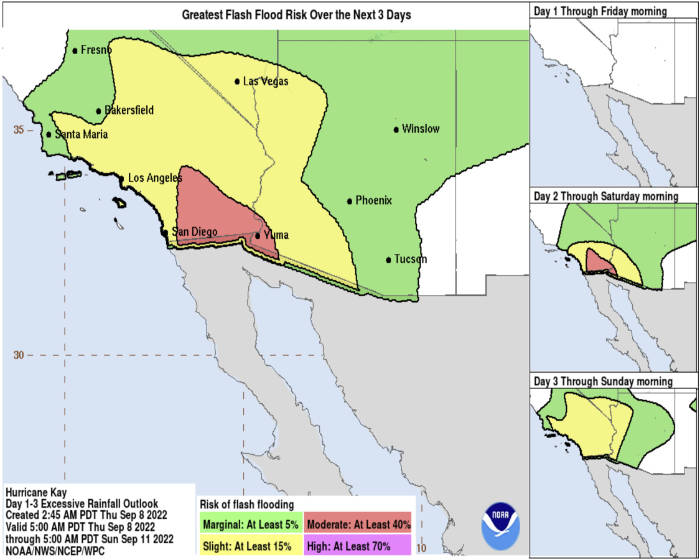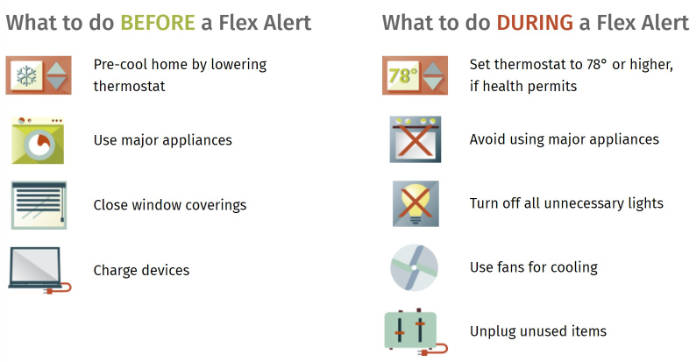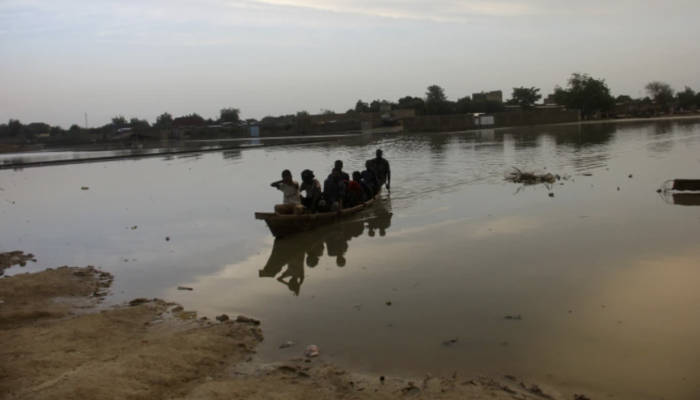In short:
- Europe is heading for a recession and will also see winter food shortages and price increases.
- 90% of the world’s countries saw their living standards decline in 2021.
- The Australian parliament passed the first climate change legislation in a decade.
National Preparedness Month Challenge
Each Tuesday and Friday throughout September, the news roundups will feature a section of TP’s beginner’s checklist and introduce a conversation topic or a challenge. After reading the highlighted section in the roundup, follow the instructions, and join us on Discord to discuss and get support. Read the introductory post and the previous topic here.
Today’s topic: 72 hrs vs. 2 weeks.
Until recently, emergency preparedness guides typically recommended having 72 hours’ worth of supplies. They’re wrong. Surviving for 72 hours is better than nothing, but most modern experts believe you should be prepared for at least two weeks to handle most likely events. Our emergency systems, first responders, and community supplies can be quickly overwhelmed. The system isn’t designed to handle sudden and widespread disasters, hence the 2 weeks rule.
For the challenge:
- Keep reading the 72 vs. 2 weeks short paragraph.
- Join us on Discord anytime after 1 pm ET for prompts and to discuss today’s topic.
Economy, food security, supply chain
US job growth was solid in August, and the unemployment rate rose almost 4%, easing fears of a recession. The Fed is likely to continue raising interest rates until the job is done:
In @FoxBusiness: NAFCU Chief Economist Curt Long says job growth in August dropped yet "remained plenty strong enough to ward off fears of a recession." Read how the latest #JobsReport "gave the FOMC exactly what they want." https://t.co/My4i5vpBip
— NAFCU (@NAFCU) September 8, 2022
Report: Over one-third of US families earning full-time year-round do not earn enough to cover a basic family budget. Black and Hispanic families face even more dire conditions. More than half of black families struggle to meet basic needs, compared with 25% white and 23% Asian and Pacific Islander families.
Europe is almost certainly heading toward a recession and will likely face winter food shortages and price increases. Natural gas and electricity price increases are hurting agri-food production cycles and, therefore, the ability to deliver essential agricultural commodities, foods, and feeds.
Britain will freeze consumer energy bills for two years and provide billions to support businesses. This is the biggest fiscal intervention in post-WWII British history.
There is concern that rising electricity prices will impede the uptake of electric vehicles in Europe despite rapid growth in the EV sector. New registrations of battery electric vehicles in the UK reached 10,006 in August 2022, a 35% increase from the previous year.
The White House unveiled its plan for bolstering domestic chip production. It will use the $50 billion funding from the CHIPS and Science Act passed this summer. The administration will use around $10 billion to increase the production of current-generation semiconductors. An additional $11 billion will be invested in research and development.
Climate change, environment, extreme weather
Hurricane Earl will likely create dangerous surf and rip currents on the East Coast:
Blistering heat & fire weather threats continue in parts of the West & Plains. Earl will produce dangerous surf & rip currents on the East Coast. Heavy rain & flooding potential in the Southeast. Heavy rain/flooding threat from Kay later this week/weekend in the Southwest. pic.twitter.com/D52CvNlA5F
— National Weather Service (@NWS) September 8, 2022
While Hurricane Kay will bring heavy rains and flash floods to the Southwest:

Typhoon batters South Korea, and preparations minimize casualties. Typhoon Hinamnoor hit South Korea, killed at least six, and dumped 3 ft of rain. Thousands were evacuated, and 66,000 homes were without power. Despite this, the death toll could have been higher if not for proactive evacuations and school closures. The government put the nation on high alert for days, so there was also greater public awareness about the storm and its risks.
The heaviest rains in 30 years have caused catastrophic floods in Chad. The floods had affected more than 442,000 people as of the end of August. In West and Central Africa, above-normal rainfall has submerged vast areas.
California likely managed to avoid rolling blackouts because enough people followed ” flex alerts.” Flex alerts are calls to save energy voluntarily during critical times. This is what a Flex Alert entails (the page also has good residential energy-saving tips):

The Australian parliament passed the first climate change legislation in a decade. The bill includes national targets of cutting emissions by at least 43% by 2030.
Study: The Thwaites Glacier is melting faster than expected. Its collapse would cause sea levels worldwide to rise by 3 to 10 ft (0.9 to 3 m) and put other parts of the West Antarctic Ice Sheet at risk.
Study: Large parts of the Amazon rainforest may never recover. Large swathes of the Amazon rainforest have reached a tipping point and might never recover from environmental destruction.
Fishing industries in Japan, China, South Korea, and the US are the common culprit behind the Great Pacific Garbage Patch.
Covid
CNBC put together a helpful primer on where to find the new omicron-specific Covid boosters, from Walgreens and CVS to local pharmacies and clinics.
And if you’re wondering when to get the latest booster, here’s a thorough explanation by Katelyn Jetelina.
The US plans to shift to annual coronavirus shots, similar to the flu vaccine.
China approved the world’s first nasal Covid vaccine booster. The inhaled booster is the first approved alternative to an injectable COVID-19 vaccine.
Report: Pediatric Covid cases increased 14% over two weeks prior, as children are getting back to school.
Study: More than 10 million children worldwide lost a parent or caregiver because of Covid.
The rest
90% of the world’s countries saw their living standards decline in 2021, according to the UN Human Development Index. Globally, the index has declined for two years since it was first calculated 32 years ago, erasing the gains from the past five years. According to the UNDP, Switzerland is the most developed country, followed by Norway and Iceland. The US is in 21st place. Read the data with caution, as even the UN knows that not all indicators are available for all countries. Here’s a quick summary video:

You are reporting the comment """ by on